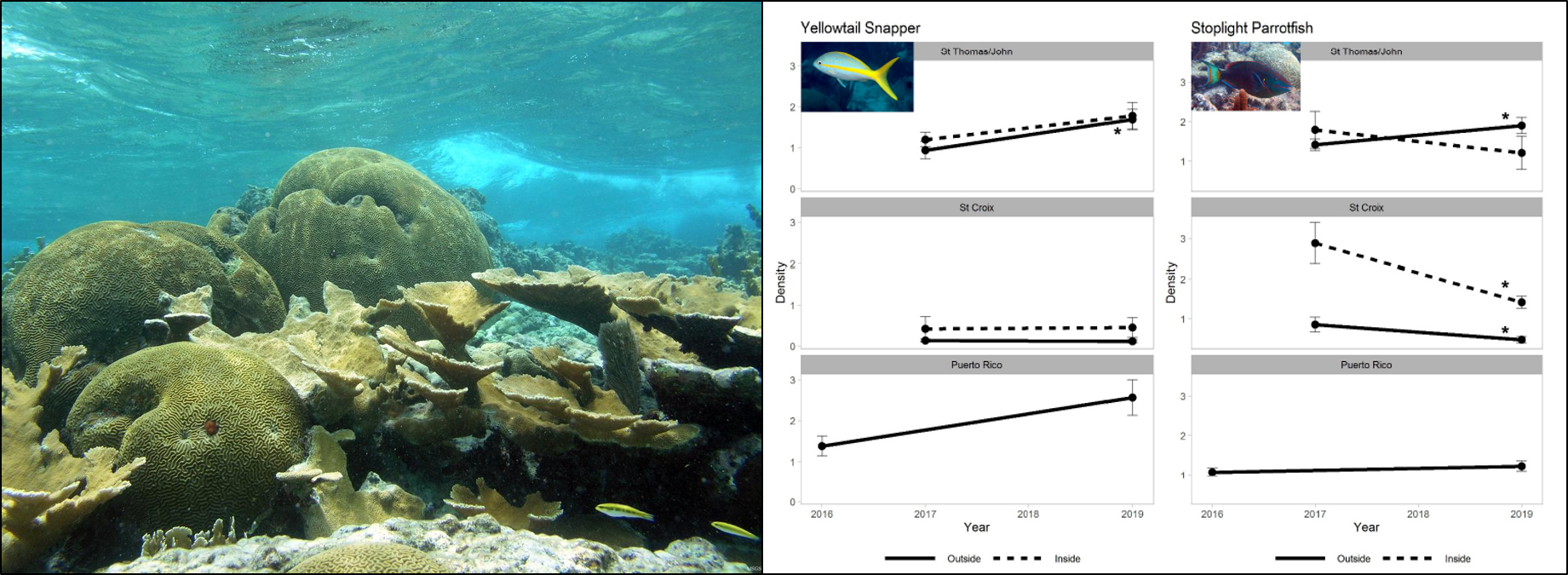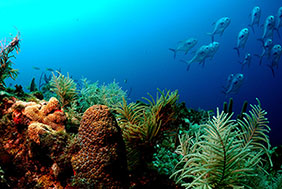-
Home
-
Data & Publications
-
Regional Portals
- About Regional Portals
- Florida
- Navassa Island
- Puerto Rico
- Flower Garden Banks
- U.S. Virgin Islands
- American Samoa
- Commonwealth of the Northern Mariana Islands
- Federated States of Micronesia
- Guam
- Main Hawaiian Islands
- Republic of the Marshall Islands
- Northwestern Hawaiian Islands
- Republic of Palau
- Pacific Remote Island Areas
-
CRCP Activities
- Glossary
New Report Shows Trends from Biological Monitoring in the U.S. Virgin Islands and Puerto Rico

The National Coral Reef Monitoring Program released a new report on biological monitoring data, including benthic and fish data, from the U.S. Virgin Islands and Puerto Rico. The report summarizes the status of coral reef biological data in the region from the most recent data collection in 2019, and is also the first Atlantic biological report to show trends from sampling every two years since 2013. Highlights of the report include:
- overall decline in coral cover,
- varying macroalgae cover,
- bleaching during the 2019 survey season,
- varying coral disease not limited to stony coral tissue loss disease,
- a wide breadth of reef fish data that can be used to reliably monitor 35-40 fish species,
- redband and stoplight parrotfish were the most commonly observed parrotfish species,
- bicolor damselfish and bluehead wrasse dominated the reefs,
- fish density differed inside and outside of national parks in the U.S. Virgin Islands, and
- fish sizes were collected for recreationally and commercially important or targeted species.
Data in the report can be used to inform coral and fish population management strategies, document endangered species and coral disease, and assist with local monitoring efforts.
Read the full study here: National Coral Reef Monitoring Program Biological Monitoring Summary U.S. Virgin Islands and Puerto Rico: 2019
Information about the National Coral Reef Monitoring Program's biological monitoring methods, data, and projects are available here: National Coral Reef Monitoring Program: Tracking Biological Trends.


